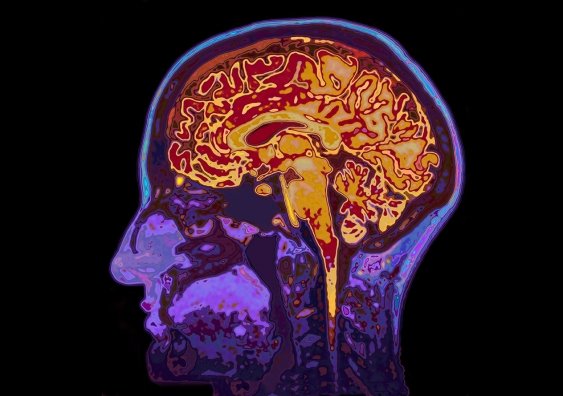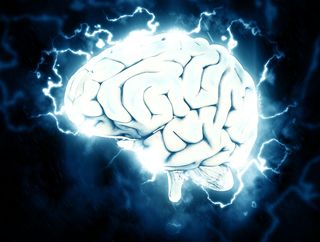How Is Your Brain Actually Doing? You May Be Surprised by What This Easy Scorecard Can Tell You
Let us face it, most of us desire more energy, a sharper intellect, and better sleep. We resolve to reduce stress, drink less, walk more, and eat better. But occasionally, we require a more compelling reason to act. What if the cumulative effect of all those modifications was something much more significant—a healthier brain?

Researchers at Massachusetts General Hospital's McCance Center for Brain Health have launched a ground-breaking worldwide study that reveals just that. The Brain Care Score (BCS), a scorecard created to offer you an overview of how your present habits may affect your future brain health, is a deceptively straightforward tool.
However, this goes beyond simply preserving your memory. It focuses on lowering your actual risk of dementia and strokes, two of the most debilitating risks to our aging independence and standard of living.
The Brain Care Score: Your Mental Report Card
Physical health, lifestyle choices, and social-emotional wellbeing are the three main categories into which the McCance Brain Care Score assigns points based on 12 factors. For a maximum score of 21, each item receives a score of 0, 1, or 2. The better your brain's long-term outlook, the higher your number.
What is measured is as follows:
Physical Well-Being
Blood pressure
Blood sugar levels
Cholesterol
Index of body mass (BMI)
Lifestyle Practices
Nutrition
Drinking alcohol
Smoking
Aerobic workout
Quality of sleep
Emotional and Social Well-Being
Controlling stress
Social connections
A feeling of direction or significance in life
It provides a comprehensive view of brain health that is more complex than a cholesterol or step count. It also encourages you to consider your ideals and sense of fulfillment in addition to your behaviors.
The Study's Findings: The Significance of Your Score
The study, which was published in December 2023 in Frontiers in Neurology, examined around 400,000 adults aged 40 to 69 who had provided health information to the UK Biobank. Researchers followed those who experienced a stroke or dementia for an average of 12.5 years.
The outcomes? Eye-opening.
Significantly lower risks were associated with each five-point increase in the Brain Care Score:
Dementia risk is 59% lower and stroke risk is 48% lower for those under 50.
Ages 50–59: 52% decreased risk of stroke, 32% decreased chance of dementia
Over 59: Dementia reductions of 8% and stroke reductions of 33% are smaller but still significant.
Why was it dropped after 60? According to research, early dementia symptoms may be subtly manifesting in some older persons before a diagnosis is made, making it more difficult to prevent.
Nevertheless, the conclusion is unmistakable: your midlife actions have a significant impact on the future of your brain.
The Reasons This Scorecard Is Unique
According to Dr. Andrew Budson, a neurology instructor at Harvard Medical School, "this is the first time someone has combined all these well-known indicators into one useful, validated brain health score." He describes the study as a true public health service, despite not being a part of it.
Actually, the BCS is not dependent on experimental medications or state-of-the-art biotechnology. It condenses decades of research into a clear, concise format. Simply take stock of your life and make the necessary adjustments; you are not being asked to start over.
This entails living a purposeful life, controlling your stress, and finding joy in relationships in addition to eating kale and working out on the treadmill.
Not flawless, but encouraging
This study has flaws like any other. The study's maximum score was 19, not 21, because the UK Biobank data did not include all 12 BCS components—more precisely, it omitted the "meaning in life" assessment.
Additionally, scores were only measured once by the researchers. Future research must examine whether raising your score over time truly reduces risk, which is a reasonable next step.
"Everything on the BCS is a well-established element in brain health," Budson ads. This is not a filler. No speculating.
How to Apply the Brain Care Score to Your Personal Situation
The good news is that you can take advantage of this without any research funding or a lab coat. Self-assessment of the Brain Care Score is simple and forgiving. Gains can be achieved without excelling in every category.
Begin with what seems manageable:
Reduce your alcohol intake?
Increase the frequency of 7+ hours of sleep?
Take a couple days a week to go for a vigorous 30-minute walk?
The Most Effective Habit for Brain Health?
If Dr. Budson could only choose one? He would wager on purpose and significance.
He asserts that "people are more motivated to care for themselves when they have a feeling of meaning." "They wish to be there for the people and objectives that are important to them."
Discovering your mission is a lifelong process that takes more than one hour to complete. But even just asking yourself, "What do I want to be here for?" can initiate little but major changes in your mentality, behaviors, and yes, even your brain.
Concluding remarks
It serves as a mild wake-up call, a means of assessing your current and desired lifestyle. Perfection is not required. It begs for attention.
Additionally, taking the time to look after your brain—your true self—is a remarkable act of clarity in a culture that is geared for distraction.
What's Your Reaction?




















